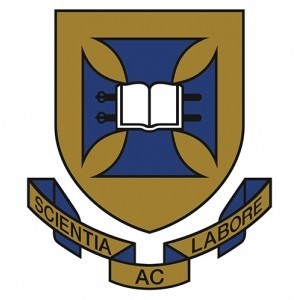Photos of university / #rmituniversity
The Bachelor of Engineering (Chemical Engineering and Biotechnology) at RMIT University offers students a comprehensive education that combines fundamental engineering principles with advanced biotechnological techniques. This interdisciplinary program is designed to equip graduates with the knowledge and practical skills necessary to innovate and excel in the rapidly evolving fields of chemical engineering and biotechnology. The curriculum covers core topics such as chemical process design, thermodynamics, fluid mechanics, and material science, while also delving into specialized areas including bioprocess engineering, molecular biology, biochemical engineering, and sustainable manufacturing practices. Students engage in hands-on laboratory experiments, industry-based projects, and work placements, which provide real-world experience and foster strong industry connections. The program emphasizes sustainable and environmentally responsible practices, preparing students to address global challenges like resource management, renewable energy, and healthcare advancements. RMIT's state-of-the-art facilities support experiential learning and innovation, enabling students to develop practical solutions to complex engineering problems. Graduates of this program are well-equipped to pursue careers in industries such as pharmaceuticals, food production, environmental management, renewable energy, and advanced manufacturing. Additionally, the program provides pathways for postgraduate studies or engineering accreditation, supporting students’ long-term professional development. Through a combination of theoretical foundations, practical application, and industry engagement, the Bachelor of Engineering (Chemical Engineering and Biotechnology) aims to produce versatile engineers capable of contributing to technological progress and sustainable development worldwide.
This program is fully accredited by Engineers Australia. Graduates of this program qualify for graduate membership of Engineers Australia. Australia is among 15 countries that are signatories to the International Engineering Alliance, also called the Washington Accord, to get engineers. The eligibility of graduates from this application is recognized in all countries that are signatories to the Accord. The Institution of Chemical Engineers (IChemE), situated in britain, could be the main international professional society for the chemical engineer. The program is accredited by IChemE, UK, at the BEng degree. Graduates can also qualify for professional membership of scientific societies including: The Australian Society for Microbiology, The Australian Society for Biochemistry and Molecular Biology
Current Year 12 prerequisites units 3 and 4 - a study score of 20 in Chemistry and a study score of 20 in one of Mathematical techniques (almost some ) or Specialist Mathematics and a study score of 25 in just about any English (except EAL) or at least 30 in English (EAL).
The Bachelor of Engineering (Chemical Engineering and Biotechnology) at RMIT University offers a range of financing options to assist students in funding their studies. Domestic students can access government-supported financial assistance, including Commonwealth Supported Place (CSP) arrangements, which significantly reduce the tuition fees, making higher education more accessible. These students may also be eligible for Commonwealth Learning Scholarships, Youth Allowance, Austudy, or other income support programs, depending on their individual circumstances. For international students, tuition fees are billed directly by RMIT and must be paid in accordance with the university’s specified payment schedule. RMIT offers various payment plans and financial counseling services to help international students manage their expenses effectively during their studies. Additionally, students can explore external scholarships and grants provided by government agencies, private foundations, industry partners, and charitable organizations. These scholarships are often merit-based or need-based and can cover part or all of the tuition fees, as well as living expenses. Work placement or internship components incorporated into the program may provide students with opportunities for part-time employment, which can help offset costs. RMIT also promotes financial literacy and budgeting workshops to support students in managing their finances prudently throughout their degree. Some students may consider obtaining education loans through government schemes or private lenders, where applicable and available. It is recommended that prospective students consult the RMIT admissions and student services departments for detailed and current financing options tailored to their specific circumstances. Overall, RMIT emphasizes making its engineering programs financially accessible and provides comprehensive support services to facilitate a smooth financial planning process for both domestic and international students pursuing a Bachelor of Engineering in Chemical Engineering and Biotechnology.
The Bachelor of Engineering (Chemical Engineering and Biotechnology) at RMIT University is a comprehensive undergraduate program designed to equip students with a strong foundation in chemical engineering principles, combined with specialized knowledge in biotechnology. This program prepares graduates for diverse careers in industries such as pharmaceuticals, food production, environmental management, and renewable energy. The curriculum integrates theoretical coursework with practical experience, including laboratory work, industry projects, and internships, to ensure students develop both technical skills and real-world application capabilities. Students will explore subjects such as process design, bioprocess engineering, chemical reaction engineering, materials science, and bioinformatics. The program emphasizes innovation, sustainability, and safety, aligning with industry standards and emerging technological trends. RMIT's state-of-the-art facilities, experienced faculty, and strong industry connections support students throughout their studies, facilitating industry placements and apprenticeships. Graduates of this program will be well-prepared for roles in research and development, process engineering, quality assurance, and technical consultancy. They will also possess the skills necessary for continuous professional development and may pursue further studies, including master's or doctoral programs, to specialize further or engage in research activities. This degree is accredited by relevant engineering accreditation bodies, ensuring that graduates meet international standards for engineering professionals. Overall, the program aims to produce innovative, ethical, and globally competent engineers who can contribute to solving complex engineering challenges in the fields of chemical processing and biotechnology.






